Conversation with Moritz Mießl (Moritz Miessl) - The painter of brainstorming paintings
We got to know Moritz Miessl of his characteristic paintings loaded with art historical, psychological and philosophical allusions. This is a result of his deep interest in conscious and unconscious things and their correlations. Being a psychologist, studying for his Masters degree in Salzburg, he is also a person with a strong artistic gift, urged by the feel to draw and paint each day. He has been drawing since the time he can think and painting since the age of eighteen. He tries to paint a few hours every day except when it is really impossible. His primary interests besides psychology are analytical and existential philosophy – especially Nietzsche – and, above all, art. He loves listening to music (Stoner Rock, Alternative, Olsschool Hip Hop), but his own music-skills are limited, even though he played music for about eleven years (guitar, accordion).
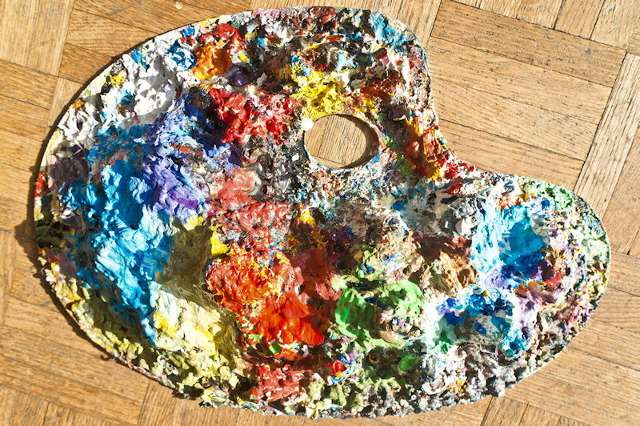
![]() custos
What has driven you towards painting, and art in general?
custos
What has driven you towards painting, and art in general?
![]() Moritz Miessl
I think it’s the urge to express myself and since I’m a very visual person I engaged in painting and drawing since I was able to hold a pencil. As a child I began to read Greek, Roman and Celtic myths and Greek philosophy (especially Socrates and sceptics like Sextus Empiricus), later as a teenager I had a focus on theorists like Nietzsche, Karl Marx, Bakunin and Max Stirner. From the age of 16 to 18 there was a time I felt stronger commitment to psychoanalysis and humanistic/new age theories (which I regret now…) and now I read French and Slovenian philosophers and psychoanalysts like Lacan, Alain Badiou, Slavoj Zizek and Alenca Zupancic. This urge to understand oneself and the world as a whole is the primary cause why I engage in art.
Moritz Miessl
I think it’s the urge to express myself and since I’m a very visual person I engaged in painting and drawing since I was able to hold a pencil. As a child I began to read Greek, Roman and Celtic myths and Greek philosophy (especially Socrates and sceptics like Sextus Empiricus), later as a teenager I had a focus on theorists like Nietzsche, Karl Marx, Bakunin and Max Stirner. From the age of 16 to 18 there was a time I felt stronger commitment to psychoanalysis and humanistic/new age theories (which I regret now…) and now I read French and Slovenian philosophers and psychoanalysts like Lacan, Alain Badiou, Slavoj Zizek and Alenca Zupancic. This urge to understand oneself and the world as a whole is the primary cause why I engage in art.
![]() custos
How do you approach art as a psychologist?
custos
How do you approach art as a psychologist?
![]() Moritz Miessl
Well, art was not art if it was meaningless. Abstraction, in contrast to realism, is defined as an excess of meaning rather than a lack of it (imagine the non-realistic story of “Alice in wonderland”!) Lacanian psychoanalysis/philosophy is just a way for me to understand this “excess”. But I would rather call myself a psychologist than an analytic. The key questions for me are: “why do we engage in art?” and “what would be the philosophical basis of a pathology-free, purely performative concept of art?”
Moritz Miessl
Well, art was not art if it was meaningless. Abstraction, in contrast to realism, is defined as an excess of meaning rather than a lack of it (imagine the non-realistic story of “Alice in wonderland”!) Lacanian psychoanalysis/philosophy is just a way for me to understand this “excess”. But I would rather call myself a psychologist than an analytic. The key questions for me are: “why do we engage in art?” and “what would be the philosophical basis of a pathology-free, purely performative concept of art?”
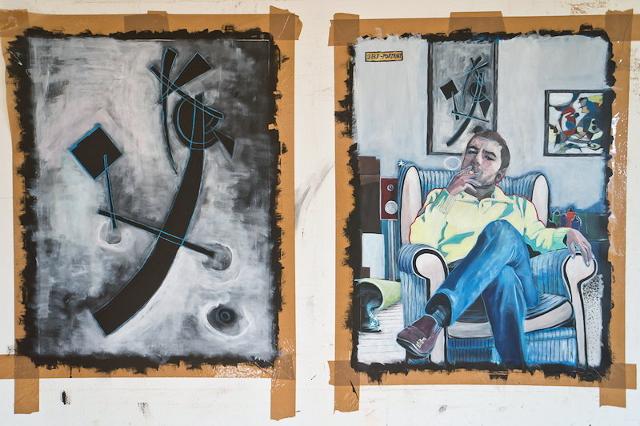
![]() custos
Your paintings are full of different allusions which are not easy to interpret. Do you think it is important to understand these references in order to enjoy the artwork?
custos
Your paintings are full of different allusions which are not easy to interpret. Do you think it is important to understand these references in order to enjoy the artwork?
![]() Moritz Miessl
There are things you know you know. There are things you know you don’t know. There are things you don’t know you know and there are even things you don’t know that you don’t know. This is not only true in relation to our knowledge but also to art itself, art-production and art-interpretation. We do not know anything and our only lifeline is that we have our free will and can make our own decisions. What is intriguing in good art is that it represents some kind of truth, some element of the real we cannot fully integrate into ourselves. Something that does not fit into our everyday reality and makes us stop and wonder.
Moritz Miessl
There are things you know you know. There are things you know you don’t know. There are things you don’t know you know and there are even things you don’t know that you don’t know. This is not only true in relation to our knowledge but also to art itself, art-production and art-interpretation. We do not know anything and our only lifeline is that we have our free will and can make our own decisions. What is intriguing in good art is that it represents some kind of truth, some element of the real we cannot fully integrate into ourselves. Something that does not fit into our everyday reality and makes us stop and wonder.
![]() custos
To whom, what kind of audience do you devote your art?
custos
To whom, what kind of audience do you devote your art?
![]() Moritz Miessl
To everyone who can relate to it – either in a positive or negative way.
Moritz Miessl
To everyone who can relate to it – either in a positive or negative way.
![]() custos
What do you think about the role – the vocation – of the painter?
custos
What do you think about the role – the vocation – of the painter?
![]() Moritz Miessl
To transform the social representation of “what a painter is”, itself. In early times of humankind an artist was perhaps one who evoked spirits for hunting-luck. In the Middle Ages a painter was someone who had to honor a sovereign with a flattering portrait. Modernity detached art from its supposedly “inherent” connection to reality; and so on.
Moritz Miessl
To transform the social representation of “what a painter is”, itself. In early times of humankind an artist was perhaps one who evoked spirits for hunting-luck. In the Middle Ages a painter was someone who had to honor a sovereign with a flattering portrait. Modernity detached art from its supposedly “inherent” connection to reality; and so on.
![]() custos
How does an idea get conceived and matured in your head until the step you decide for creating a painting of it?
custos
How does an idea get conceived and matured in your head until the step you decide for creating a painting of it?
![]() Moritz Miessl
Either I have a strong concept from the beginning on or I develop a painting deductively or inductively. A strong concept usually means a realistic content, like depicting a particular person. Deductive (top-down) means that I go from the abstract towards the concrete: I begin with an abstract idea or question and like “brainstorming” I create abstract forms which crystallize in concrete ones. In the case of the inductive process it happens the other way around.
Moritz Miessl
Either I have a strong concept from the beginning on or I develop a painting deductively or inductively. A strong concept usually means a realistic content, like depicting a particular person. Deductive (top-down) means that I go from the abstract towards the concrete: I begin with an abstract idea or question and like “brainstorming” I create abstract forms which crystallize in concrete ones. In the case of the inductive process it happens the other way around.
![]() custos
What do you think about artistic success? Do you think it goes together with the giving up of constant search and renewal?
custos
What do you think about artistic success? Do you think it goes together with the giving up of constant search and renewal?
![]() Moritz Miessl
I think art is an event like a political or scientific one and like these all attempts to stop new movements and revolutionary ideas unavoidably lead to a deadlock and obscurantism. By obscurantism I mean all concepts of art which try to reduce the revolutionary and liberating effect of art to the pathology of some insane individuals (“artists”). For example the label “realism” as an art-form implies that it would depict reality “as it is”, and other forms of art such as surrealism, or cubism are distorted forms of realism and ultimately an expression of pathology. This love of realism springs from our need for a simple and controllable life. But life isn’t controllable. We do not know where we come from and where we go. What could be a better expression of our existential fears than the fragmented faces and worlds of Picasso and other Cubists? And this is in a fundamental sense much more realistic than the pathetic world created for example by Karl Spitzweg.
Moritz Miessl
I think art is an event like a political or scientific one and like these all attempts to stop new movements and revolutionary ideas unavoidably lead to a deadlock and obscurantism. By obscurantism I mean all concepts of art which try to reduce the revolutionary and liberating effect of art to the pathology of some insane individuals (“artists”). For example the label “realism” as an art-form implies that it would depict reality “as it is”, and other forms of art such as surrealism, or cubism are distorted forms of realism and ultimately an expression of pathology. This love of realism springs from our need for a simple and controllable life. But life isn’t controllable. We do not know where we come from and where we go. What could be a better expression of our existential fears than the fragmented faces and worlds of Picasso and other Cubists? And this is in a fundamental sense much more realistic than the pathetic world created for example by Karl Spitzweg.
Nowadays there are certainly other philosophical and scientific questions in the focus of interest and therefore you have to develop new forms of art. Without this constant search and renewal art wouldn’t be possible. The search for permanence and conservatism rather contradict the very definition of art as a free act and therefore couldn’t be possibly called “art”.
![]() custos
What would mean the “completion” of your career?
custos
What would mean the “completion” of your career?
![]() Moritz Miessl
I think art cannot be completed by definition, but I would call it a great success for myself if I could make my living from art and having psychotherapy as a secondary income...
Moritz Miessl
I think art cannot be completed by definition, but I would call it a great success for myself if I could make my living from art and having psychotherapy as a secondary income...

![]() custos
Since your paintings are truly seem to be ready for an exhibition I ask whether you plan to have one in the near future?
custos
Since your paintings are truly seem to be ready for an exhibition I ask whether you plan to have one in the near future?
![]() Moritz Miessl
Thank you very much! Well, I did my last one with the age of 19 and sold a few paintings and since then I’ve been planning to make one all the time. I could exhibit in Munich right now, but I don’t find time for that. For now I’m pretty busy with my studies and the rest of my time I’m devoting to art-production.
Moritz Miessl
Thank you very much! Well, I did my last one with the age of 19 and sold a few paintings and since then I’ve been planning to make one all the time. I could exhibit in Munich right now, but I don’t find time for that. For now I’m pretty busy with my studies and the rest of my time I’m devoting to art-production.
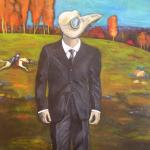
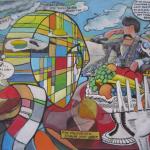
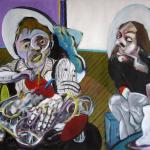
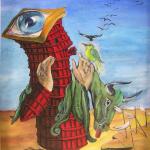
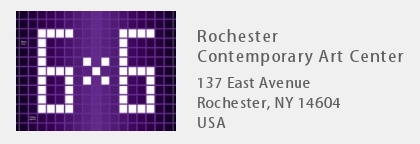
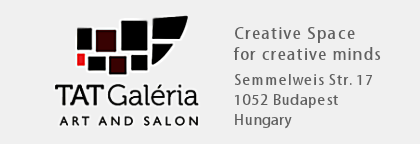
Comments